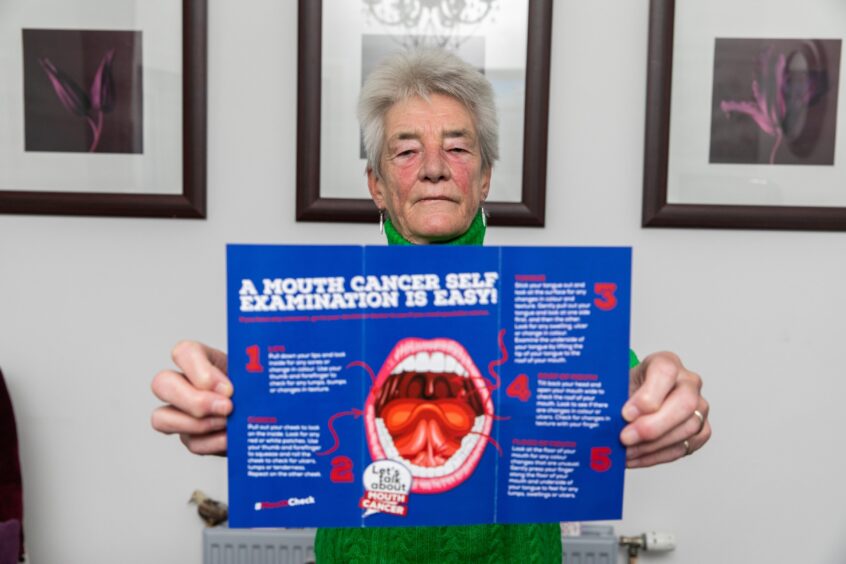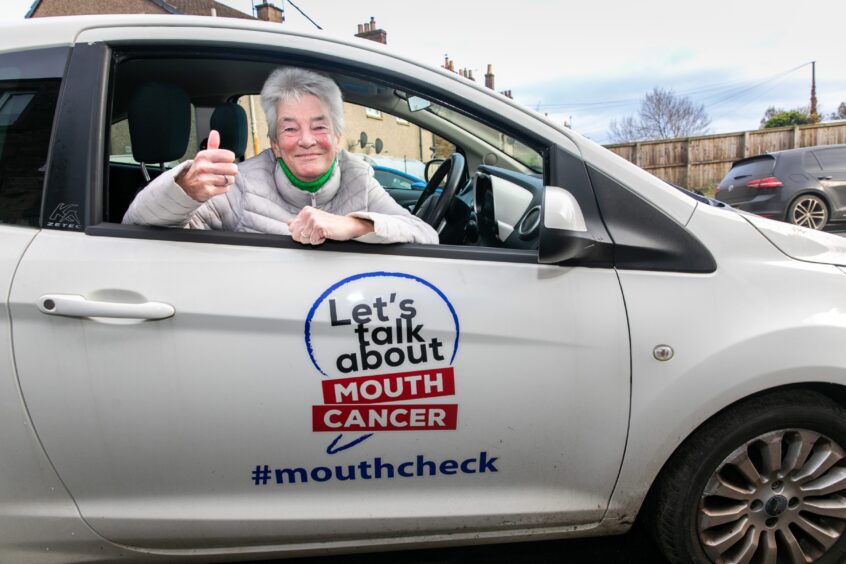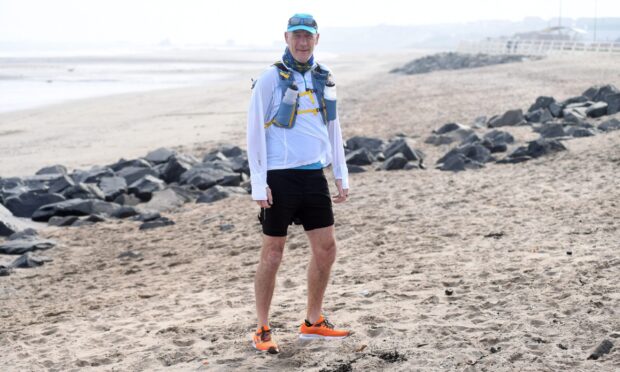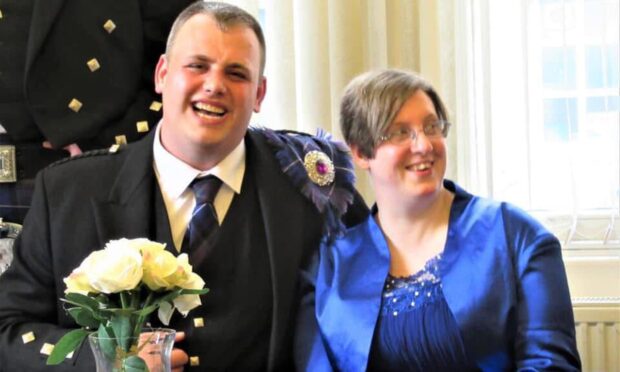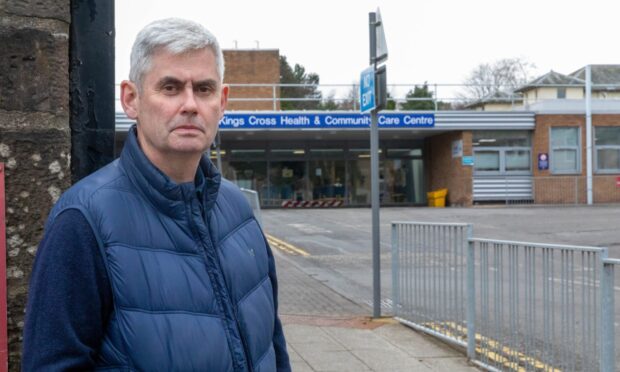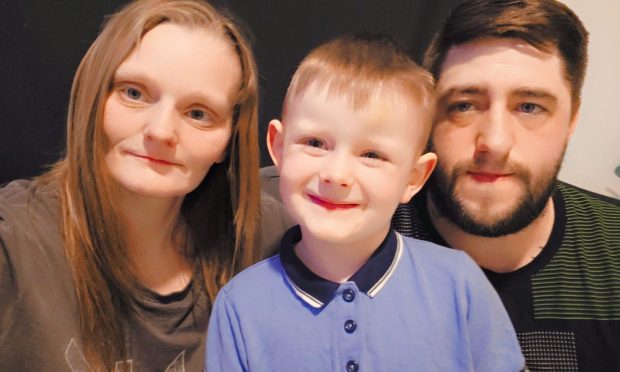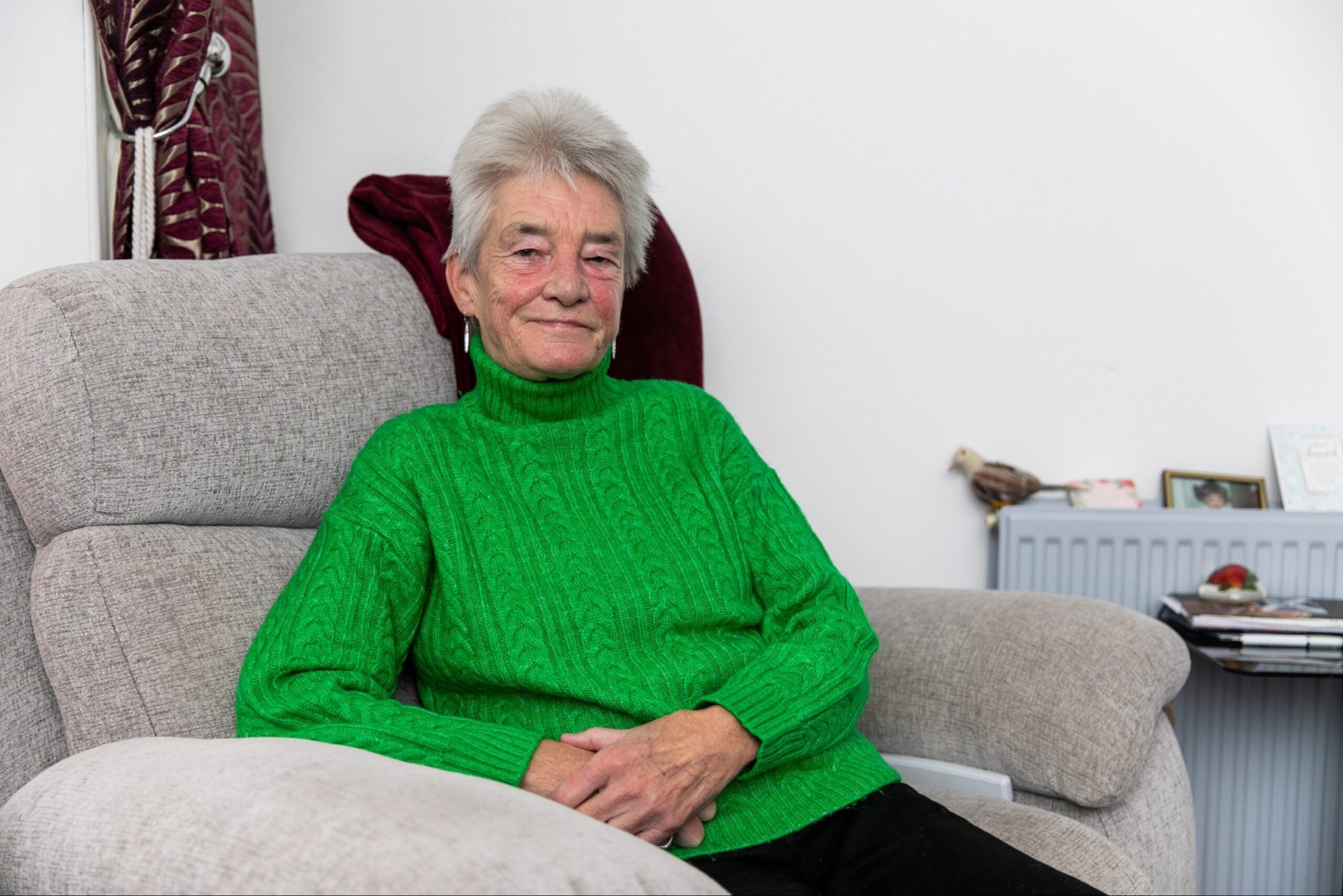
When Barbara Boyd discovered an ulcer on her gum four years ago, she put it down to an injury caused by a particularly sharp crisp.
The 65-year-old mum, from Kirkcaldy, wasn’t too concerned when the sore refused to go away and her dentist reassured her further, during a routine check-up.
“It wasn’t painful – it was just there,” Barbara explained.
“I had a check up with my dentist, so I pointed out to her that there was something on my gum. But she had a look and said there was nothing there.”
When the discomfort failed to improve, Barbara returned to her dentist twice more but was told not to worry – she just had “bumpy gums”.
It wasn’t until the worried mum mentioned the sore to a nurse at her GP practice some time later that she was finally referred to an oral specialist in 2019.
“The doctor looked at my mouth,” she recalled.
“He said: ‘I see lots of things like this. But I don’t think this is cancer. However, I would like to do a biopsy to rule that out.
“I was shocked. I said to him ‘mouth cancer? What are you talking about?'”
Barbara received the results of the biopsy a fortnight later – she had mouth cancer.
“I was completely shocked. I just thought to myself ‘how am I going to deal with this?'”
So began months of grueling treatment which included two operations. One to remove half her tongue and neck surgery to prevent the cancer from spreading. The retired PE teacher also had to learn to talk again.
Now fully recovered, she has bravely decided to share her story with The Courier as part of Mouth Cancer Action month, to help educate others on signs of the disease.
“It was absolutely shocking that my dentist missed it because this should have been picked up. If not the first time, definitely on one of the other two,” she said.
“If it had been caught earlier I might not have had to go through that neck dissection. But I am not going to let this ruin my life and hopefully lessons can be learned from this.”
Sixth most common form of cancer
Mouth cancer is the sixth most common cancer in the world and is on the rise in the UK.
Latest figures, from 2020, show that 881 people in Scotland were diagnosed with mouth cancer in a year.
This has increased by 16% compared with 10 years ago.
Common symptoms include: red and white patches inside your mouth, ulcers or sores that do not heal within 14 days, a lump in the neck.
They can also include pain or bleeding in the mouth, difficulty swallowing, persistent pain in the throat or ear speech problems.
Barbara admits she had never heard of the disease until her diagnosis.
The mum-of-one says she had always been fit and healthy. She didn’t smoke and drank only the occasional glass of wine.
Mouth cancer operation
Barbara was treated by consultant head and neck surgeon, Kishore Shekar, who is based at Ninewells Hospital in Dundee.
“He told me I would get surgery which would see me lose half my tongue as the tumour would be removed. Mr Shekar said we would then take it from there.
“He and I got on so well. He was absolutely brilliant and answered any questions I had.”
When she came round from the surgery in Ninewells, Barbara was unable to talk or swallow.
“Mr Shekar told me he would give me six weeks and if I got my speech back and was eating better, then he wouldn’t have to do any reconstruction work on my tongue,” she said.
“Well, I did every mouth exercise that I needed to do, religiously, so I wouldn’t have to get that done.”
‘I was like a child learning to speak again’
Barbara said it took a long time before she could eat food properly again. Then there was speaking.
“It was like a child learning to talk,” she said, remembering her speech therapy sessions.
“I had to repeat phrases over and over like ‘the cat sat on the mat’ and ‘pie in the sky’.
“I had a problem saying the letter ‘s’ for a long time.
“My friends and family got really cheesed off with me because all day, every day, I would be repeating ‘the cat sat on the mat’ or ‘the pie in the sky’.
“I had to do mouth exercises for weeks, but eventually I started to regain my speech.”
Barbara thought she wouldn’t need another operation, but there was more bad news from her consultant only months after the first operation.
“He told me the tumour was larger than they had thought. Samples had been tested and he said they would need to do a neck dissection.”
The operation involved draining Barbara’s lymph nodes to prevent the cancer from spreading.
“That news was absolutely devastating. I remember just walking around Ninewells Hospital trying to process what he had told me.”.
Pain travelled between her head and neck for about two years after the operation.
“I couldn’t lie in my bed on my left hand side.
“Sometimes I still can’t – due to the nerve damage it caused.”
When did Barbara get involved with the mouth cancer charity?
Despite her ordeal, Barbara has been determined to raise as much awareness of mouth cancer as she can.
After she was given the all-clear in the summer of 2019, she found out about the charity ‘Let’s Talk About Mouth Cancer’.
She is now a patient champion and charity trustee.
Barbara has also attended events on behalf of the charity.
And she hopes to help organise a Scottish ‘Let’s Talk about Mouth Cancer’ conference next year.
Barbara explained: “As part of the work I have been doing with ‘Let’s Talk About Mouth Cancer’ I have spoken to every dental practice manager in Fife.
“I have visited dental surgeries and taken leaflets along about mouth cancer. I explain to the practice manager that I have had mouth cancer, that my dentist missed it and as a result, I had to have part of my tongue cut away.
“And I ask them to please encourage every one of their dentists to check their patient’s teeth, lips, the roof and floor of their mouth and their cheeks during every visit.”
She also urges people to pay attention to any changes in their mouth when they are cleaning their teeth.
“My personal slogan is ‘Mind your Mooth’ because I feel local people can relate to that, especially youngsters.”
‘It makes you appreciate what you have got’
Barbara, who continues to have regular check-ups as well as support from her son David, 26 said her experience has made her thankful for what she has.
She added: “It has made me appreciate what I have got because I know there are others who haven’t been as lucky.
“I still can’t eat properly and I will never be able to.
“But I am still here and reaching out to people to raising awareness of mouth cancer.
“If I can prevent just one person from having to go through what I have been through, it will be worth it.”
